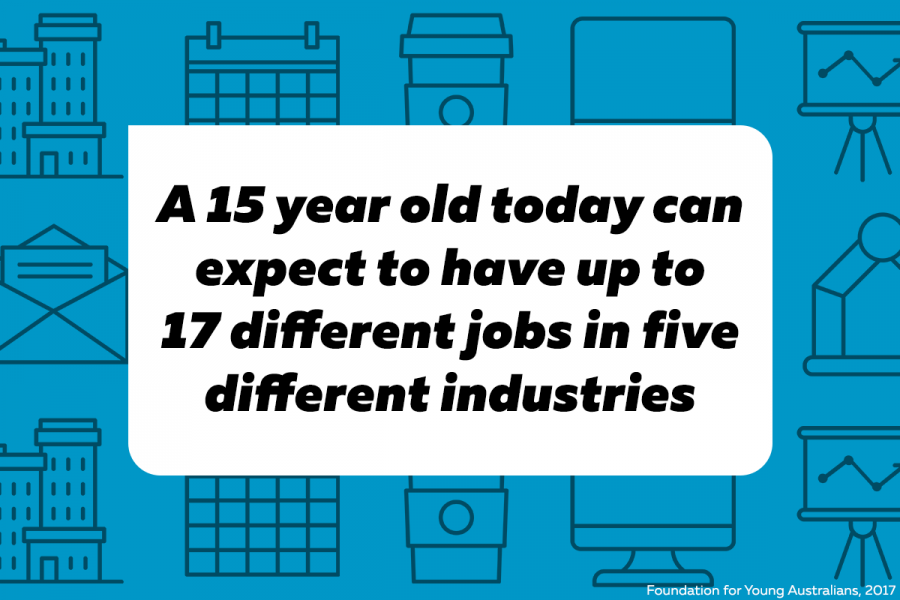Future careers are skills-focused

Continuing our future of work series – we discuss how building up your transferable skills will be the key to moving between jobs and industries in the new world of work.
What's on this page?
The world of work is changing and you need to be prepared. The rise of artificial intelligence (AI) means some jobs will disappear and new jobs will emerge. But because it’s such a fast-changing environment, it’ll be less about aiming for a dream job, which may actually disappear, and more about gaining skills that can be applied to a range of jobs. Many of these jobs may not even have emerged yet. But one thing is certain – they’ll need skilled people.
Choose your skill cluster
Researchers have found that many skills in seemingly different jobs are related, and have identified seven skill clusters. This means it’ll be possible for you to move into roles using similar skills, but in different jobs and industries – though in some cases you’ll need to do some extra training to make the move.
The skill clusters are:
- artisans (build and maintain)
- generators (sell and serve)
- co-ordinators (balance the books)
- informers (teach and provide information)
- designers (construct or engineer things)
- carers (improve the wellbeing of others)
- technologists (understand and manipulate digital technology).
When jobs are organised this way, you can see how working in one job could give you the skills to unlock many others. For example, you could move from farm to electrical work (with some training), because they both sit in the artisan skill cluster.
For those entering the workforce, one entry-level job could be the gateway to a whole lot of other roles.
Gain lifelong skills through work and learning
To adapt to the move from industries to skill clusters, you’ll need to be aware of what skills you have. You’ll also need to continually refresh your skills to keep up with the pace of technological change. This way you can market yourself well to employers.
Remember that you don’t just gain skills through paid work. You can add to your skill set through:
- voluntary work
- being an ambassador in the community for a cause close to your heart
- self-directed learning
- a combination of tertiary training, workplace learning and short courses, including micro-credentials (innovative short courses that allow you to quickly upskill or gain new skills valued by employers but not offered by traditional education).
Find out more
Get more future of work articles
Our future of work article series explores the latest career research to show how technology will transform your career.
- Get ready to work in a digitally transformed world
- Aim for skilled, creative work with a human touch – let AI do the rest
- Employability skills are the heart of the future
- Find a new way of working: entrepreneurship and portfolio careers
- Sign up to our e-newsletter for job hunting tips delivered straight to your inbox
Sources
- Baker, S, 'The Global University Employability Ranking', 16 November 2017, (www.timeshighereducation.com).
- Foundation for Young Australians, 'The New Work Mindset – 7 New Job Clusters to Help Young People Navigate the New Work Order', 2017, (www.fya.org.au).
- Foundation for Young Australians, 'The New Work Order – Ensuring Young Australians have Skills and Experience for Jobs of the Future, not the Past', 2015, (www.fya.org.au).
- Hermant, N, 'Entering the Job Market? Think Skills, not Just Careers', 24 November 2016, (www.abc.net.au).
- Kennedy, J, 'Preparing for a Career that Doesn’t Exist Yet', 15 October 2013, (www.educationaladvancement.org).
- McKinsey Global Institute, 'Jobs Lost, Jobs Gained: Workforce Transitions in a Time of Automation', December 2017, (www.mckinsey.com).
Updated 3 Oct 2019
